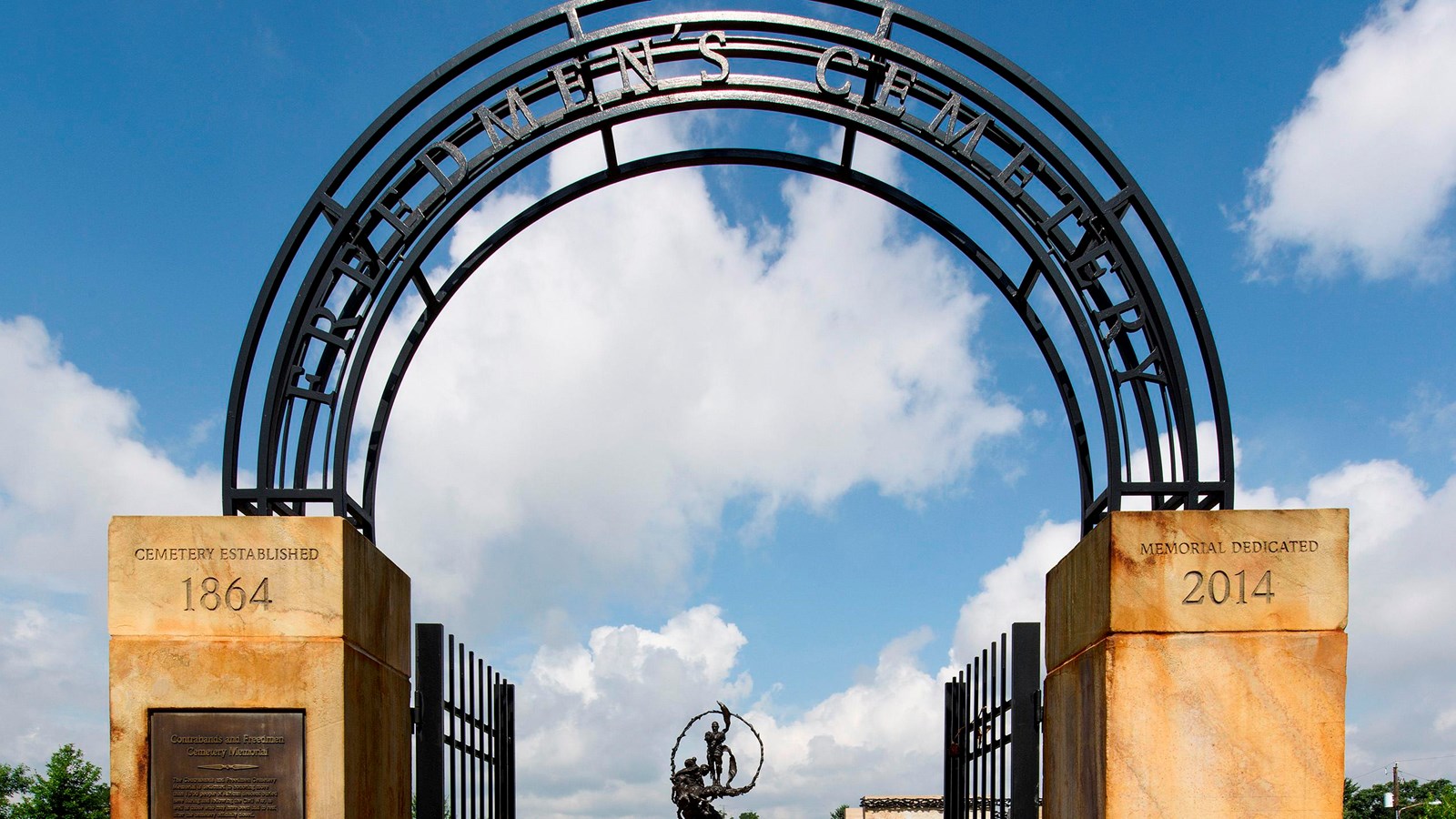Last updated: July 22, 2021
Place
Virginia: Contrabands and Freedmen Cemetery and Memorial

City of Alexandria
At the height of the Civil War, self-emancipated African Americans left their Union-occupied homes and fled to various cities, including what is now known as Alexandria, Virginia. As thousands of malnourished, ill and impecunious African Americans arrived in hopes of attaining freedom and justice, they were met with the continued horrors of racism and segregation. Eventually, they gained their freedom via the Emancipation Proclamation and subsequent 13th Amendment of the U.S. Constitution.
These individuals were known as “Contrabands and Freedmen” and are buried at the Contrabands and Freedmen cemetery located at 1001 South Washington Street in Alexandria, Virginia. The historical site was added to the National Register of Historic Places in 2012. Established by the federal government in March of 1864, the cemetery is the resting place of over 1,700 African American people. At the time of its inception, it was one of very few sacred resting places specifically for Black people.In 1864, a successful petition by over 400 USCT (United States Colored Troops) residing in Alexandria’s L’Ouverture Hospital resulted in the disinterment of approximately 118 USCT from Freedmen’s Cemetery and reburial with full military honors in Soldier’s Cemetery (currently known as the Alexandria National Cemetery) in recognition of their service to the US. The petitioners wrote:
As American citizens, we have a right to fight for the protection of her flag, that right isgranted, and we are now sharing equally the dangers and hardships in this mighty contest, andshould shair [sic] the same privileges and rights of burial in every way with our fellow soldierswho only differ from us in color….We ask that our bodies may find a resting place in the grounddesignated for the burial of the brave defenders of our countries flag.
Over a three-week period in January of 1865, the USCT soldiers were reburied in Section B of the National Cemetery. Nearly a century later, in 1955, a gas station and later, an office, were built on the burial ground. Several years later, recurring archaeological excavations revealed the presence of over 600 graves. Speculative assumptions now had accompanying physical evidence and the irrefutable presence of graves sparked a movement by local citizen activists to purchase the gas station and office building lots so that the cemetery could be preserved, protected and honored in its entirety.
Activists diligently used lobbying and education efforts to push for the creation of a memorial and once the gas station and office building were demolished, memorial efforts went underway.The names of those interred in the cemetery allowed for the identification of an extended network of descendants in Alexandria and across the nation. Contrabands and Freedmen Cemetery is not only a reminder of the harsh reality of American chattel slavery, but of the continued struggle for freedom.The memorial site has routinely served as a place of gathering, reunion and protests with one of the most recent being a Black Lives Matter demonstration in 2020.
The Contrabands and Freedmen Cemetery and Memorial was designated to the African American Civil Rights Network in June 2021.
The African American Civil Rights Network recognizes the civil rights movement in the United States and the sacrifices made by those who fought against discrimination and segregation. Created by the African American Civil Rights Act of 2017, and coordinated by the National Park Service, the Network tells the stories of the people, places, and events of the U.S. civil rights movement through a collection of public and private elements.
